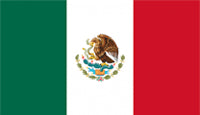What is Estate Planning?
It is essentially the process by which a person arranges for the distribution of his or her property upon death according to his or her own desires. Surprisingly, most people die without ever doing any estate planning. Perhaps it is because no one likes to think about death.
Unfortunately, it is impossible to know whether or not a person’s testamentary wishes are actually fulfilled if there isn’t a proper plan in place. It cannot be stated enough – the benefits of doing your own estate planning far outweigh the benefits of leaving it up to chance.
How Do You Know if You Need an Estate Plan?
It is simple, pretty much everyone needs an Estate Plan. Many single people feel it is not important and it is best to wait for marriage and family. Almost everyone sees the need for implementing an estate plan when you are married with children. Planning for the care of children is often on the minds of parents.
Interestingly though, single individuals are often unaware of the consequences of not having an estate plan should something happen to them. Simply put, there is no one with “automatic” legal authority to step in and take over if a single person dies or becomes incapacitated. The court will be required to get involved.
Preparing even a simple estate plan will allow a single person’s estate to be administered without going through the probate court process.
What is the Cost of Not Implementing an Estate Plan?
Dying without an estate plan will probably force your family to become involved in a “probate” in order to administer your estate and distribute your assets to your heirs. Even if you become incapacitated without doing advanced planning, a certain type of “living probate” may be necessary.
Probate, being a court proceeding, can be a long, drawn-out, costly undertaking. For example, in California, a simple probate will often take from nine months to two years and will cost from 4-10% of the value of the decedent’s estate.
Did you know that probate proceedings are of public record and privacy goes by the wayside?




